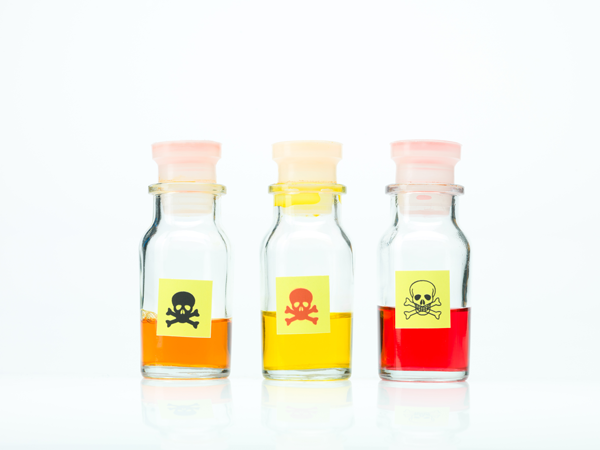So you’re out at your local grocery store picking up some ingredients for dinner when you remember you’re out of shampoo. You quickly snag your favourite natural and organic brand before making your way back to the cashier.
Claiming your spot in line, you’re feeling proud of remembering and can’t wait for a nice hot shower back at home.
Problem Is, Your Shampoo Is Toxic
At least thousands upon thousands of products are and they can be at the store or on your bathroom counters. You might be thinking why you weren’t told about this and that’s because of Green Washing.
Green Washing is when a company claims to be “green” through marketing when in reality their products do little in helping you or the environment. Essentially, it’s manipulating the labels to pretend that something is when something really isn’t.
It’s not your fault that you didn’t know, it’s theirs but now it’s time to go deeper into the reality of toxins in products. One thing you have to know is that beauty companies do not have to put their products through safety testing.
They can add whichever chemicals coupled with a few organic and natural ingredients and present it as all “natural” and “organic”.
Not so green as you thought, right?
Especially not, when products from popular “organic” brands were found to contain cancer-inducing chemicals like 1,4-Dioxane that aren’t even listed on the labels.
What Exactly Is 1,4-Dioxane?
1,4-Dioxane is a byproduct of the petrochemical “Ethylene Oxide”. It is used in manufacturing through a process called Ethoxylation as a means of diluting harsher ingredients so that they are milder for use. Ethylene Oxide is a known carcinogen.
What Does 1,4-Dioxane Do?
Besides causing cancer, it can wreck your kidneys, your respiratory system and cause unwanted birth defects. Also as a neurotoxicant, it has the ability to cause damage to your central nervous system.
Some examples of neurotoxicants are ammonia, lead and aluminum, which are things you probably wouldn’t want inside your beauty or personal care products.
How Can I Avoid 1,4-Dioxane?
We’re always told to protect ourselves in dangerous situations and that should be no different when it comes to using potentially dangerous products on our body.
It’s important to check the labels of the products you use and in products where 1,4-dioxane may be present. Toxic ingredients could be lurking in shampoos, soaps and body wash.
Also keep your eyes peeled for chemicals like Sodium Laureth Sulfate and any ingredients that contain “polyethylene,” “DEA, “TEA,” or “MEA,” it’s a good idea to avoid these.
If you’re wondering what these chemicals are, here’s a short introduction:
Sodium Laureth Sulfate
Detergent seems to be our best friend when our clothes get grimy but not when it’s in our beauty products! With qualities of a detergent, Sodium Laureth Sulfate is used in wide spectrum of products and can be found in your shampoos and cleansers. Yikes.
Polyethylene
A form of plastic that can be found in products ranging from your cleansers to mascaras, it can be found in a wide range of modern day beauty products. Why is this toxic you ask? It’s carcinogenic and related to ethylene oxide, which means it can be contaminated with 1,4-dioxane.
DEA (diethanolamine), TEA (triethanolamine), MEA (Monoethanolamine)
You may love the foam that comes with your shampoo, soaps and cleansers but not when they are linked to increased chances of cancer! These chemicals smell like ammonia and are used to create those suds you love.
There are so many products out in the market today and it can be overwhelming when trying to figure out the ones you should use.
But remember, beauty doesn’t mean you should be putting your health at risk so it’s always better to look at the labels and go with trustworthy brands that live up to their promises.
The next time you’re at the mall or the grocery store take a second look at your product because what’s inside may just surprise you.
You can find much more information on living a holistic lifestyle in these free magazines and on our YouTube channel.
Celina Huang
References:
MERCOLA, JOSEPH. “CARCINOGENS FOUND IN “ORGANIC” PERSONAL CARE PRODUCTS” MERCOLA. 05 APRIL 2008. WEB. 20 MAY 2014.
SUZUKI, DAVID. “ SODIUM LAURETH SULFATE” DAVID SUZUKI FOUNDATION. 20 MAY 2014.
“Ingredients To Avoid in Personal Care, Skin Care & Beauty Products | Organic Beauty Talk.” Organic Beauty Talk. N.p., n.d. Web. 20 May 2014.






